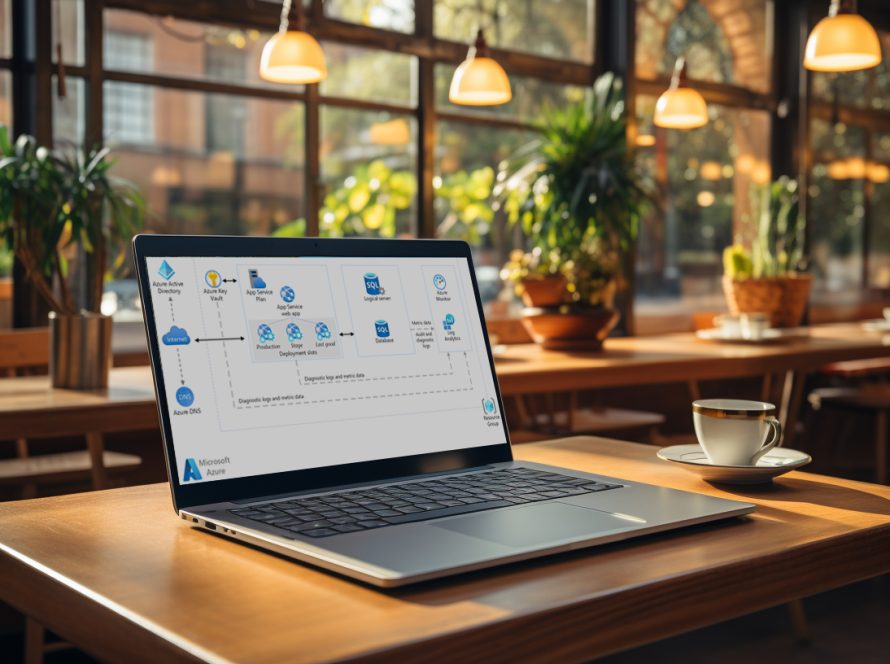These days, more people are working remotely and using their own devices—like phones, tablets, and laptops—for work. This is called BYOD (Bring Your Own Device). For small and medium-sized businesses (SMBs), this trend can save money since they don’t have to buy new equipment for everyone. Plus, employees get to work on the devices they’re most comfortable with.
But while BYOD has its benefits, it can also open up a lot of security risks if not handled properly. Without clear rules and protection, personal devices could expose sensitive company info to hackers or lead to accidental data loss. So, if you’re running a business, it’s super important to have a secure BYOD policy in place.
Let’s dive into how businesses can set up a BYOD policy that’s both safe and efficient, using Microsoft tools. Plus, we’ll see how this approach helps businesses stay innovative and give employees more opportunities for growth and learning.
Why BYOD is a Big Deal for SMBs
For SMBs, allowing employees to use their own devices for work is a win-win. Workers are usually faster and more comfortable on their personal devices, and businesses don’t have to shell out for new hardware. In fact, according to the Australian Bureau of Statistics, 41% of Australians work from home regularly. With remote work on the rise, a solid BYOD policy is more important than ever.
But it’s not all smooth sailing—if there aren’t any protections in place, sensitive business data could be at risk. A well-planned BYOD policy can help businesses keep things flexible while staying secure.

1. Manage Devices with Microsoft Intune
One of the biggest challenges with BYOD is making sure all those different devices stay secure. This is where Microsoft Intune comes in. Intune is a tool that lets businesses manage both personal and work devices from one place. It ensures that every device meets the company’s security standards before accessing important info.
With Intune, businesses can:
- Set security rules for devices.
- Encrypt data to keep it safe.
- Monitor devices to make sure they’re secure, and block any that don’t follow the rules.
Basically, Intune acts like a security guard, making sure only safe devices can access company data.
Tip: Set up Intune Compliance Policies so that if a device doesn’t meet the company’s security rules, it’s automatically blocked. This keeps your business data safe and reduces the chance of security breaches.
2. Protect Data with Azure Information Protection (AIP)
In a BYOD world, it’s easier for sensitive information to be shared on unsecured networks. That’s where Azure Information Protection (AIP) comes in. AIP helps businesses label and protect data based on how sensitive it is.
For example, important documents (like financial records or customer details) can be automatically encrypted and given limited access. Even if a document gets shared outside the company, it stays protected.
By connecting AIP with Microsoft 365, businesses can control how their data is shared and accessed, no matter where it goes.
Tip: Use AIP’s Data Classification to label documents based on how sensitive they are. This helps automate security rules like encryption or restricted access, keeping your business compliant with privacy laws like the Australian Privacy Act.
3. Secure Devices with Multi-Factor Authentication (MFA)
Passwords alone aren’t enough to keep business data safe—especially when personal devices are involved. Multi-Factor Authentication (MFA) adds an extra layer of protection by requiring users to verify their identity using something more than just a password, like a fingerprint or a code sent to their phone.
Azure Active Directory (Azure AD) offers built-in MFA, which means businesses don’t need to pay extra for it. By setting up MFA, businesses can prevent unauthorized access, even if a password gets hacked.
Tip: Set up Conditional Access Policies in Azure AD to require MFA for any device trying to access sensitive data. This way, even if someone guesses a password, they won’t be able to get in without the second form of verification.
Upskilling and Innovation with BYOD
In addition to saving money and offering flexibility, a strong BYOD policy can actually boost employee growth. Employees in companies that allow BYOD have more chances to upskill through platforms like LinkedIn Learning or Microsoft Learn. They can use their personal devices to learn new skills or explore new technologies, which can help them grow within the company.
Encouraging a BYOD culture also allows employees to experiment with different tools and software, fostering a sense of ownership and responsibility for their roles.
So to Wrap it up..
A solid BYOD policy can be a huge win for both businesses and employees. By using Microsoft tools like Intune for device management, Azure Information Protection for data security, and Azure AD for multi-factor authentication, businesses can stay secure and compliant while still offering flexibility to their teams.
Not only does this approach reduce IT costs, but it also creates a space for innovation and employee growth. Ready to set up a secure BYOD policy for your business? Online 3 offers tailored support packages to help Australian SMBs implement secure, scalable, and innovative IT solutions.
Let’s create a smarter, safer, and more flexible work environment together.


